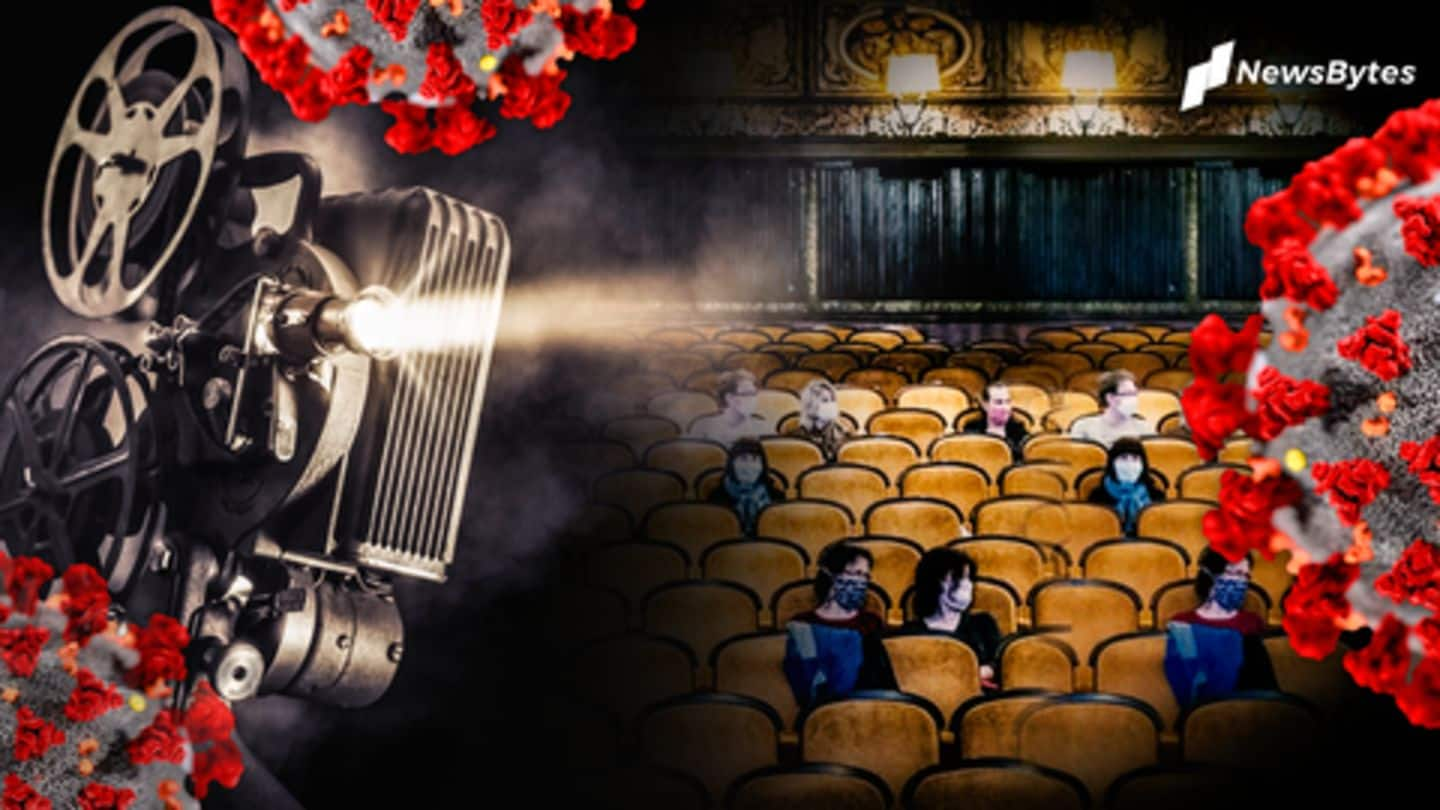
COVID-19 and films: How the pandemic is changing cinema
What's the story
They say films are a reflection of the society.
And now that the world has turned upside down, there remains little doubt about the fact that there will be unprecedented shifts concerning the dynamics of films and the showbiz.
A lot is set to change about how movies are made, seen, and sold around the world.
Here, we discuss some of it.
Information
Showbiz remain shut amid the pandemic
Across India, movie productions are stalled and theaters remain shuttered since March in wake of the coronavirus crisis. Consequently, producers are eyeing losses worth thousands of crores. Meanwhile, the industry's daily wage earners are struggling to fill their stomachs and pay bills.
Production
The show must go on, albeit with precautions
Through a 37-page document outlining ways to fight the risk of transmission of the virus during film production, the Producers Guild of India made it clear that the show must go on, albeit with some precautions.
Accordingly, all members must wash hands, and wear face masks and gloves during shoots. They will also have to avoid hugs, kisses, and maintain a respectable distance with colleagues.
Do you know?
Lesser people on sets, more at home
Needless to say, there will be lesser people on sets and more working from home. The Guild advised that those whose work can be carried out remotely, or are aged above 60, or have health conditions, should work from home.
Casting
Rushing for auditions might become a thing of the past
One of the most daunting tasks that actors confront is to rush from one studio to another to give endless auditions.
While the process may continue to remain as intimidating, the rushing part could possibly become a thing of the past.
The Guild has said that casting will now be done online, either through video submissions or real-time video conferencing.
Pay cuts
The rich may not get richer: Stars to take cuts?
It is rather obvious that in the post-COVID world, the crew will be limited, the production size humbler, and budgets tighter.
This, in a way, implies that top guns, both actors as well as directors, could be expected to take pay cuts in the near future.
This is so because in India, a major portion of a movie's budget goes to its lead stars.
Quote
Stars will have to reduce their price, feels Mani Ratnam
"Stars and technicians will have to reduce their price, to make sure that the industry remains afloat... We will also require help from the government so that we can get back on our feet soon," veteran filmmaker Mani Ratnam recently said in a webinar.
OTT
Stepping out for a movie? No need!
As theaters remain shuttered, producers have started exploring alternate options.
This is inevitable because, even if theaters do reopen, how many people would be comfortable sitting in a confined space with so many strangers?
The simple solution for producers is streaming platforms. It won't be wrong to say that one can now expect more mainstream movies and A-listers on OTT platforms.
Controversy
Streaming is the new normal. Predictably, exhibitors are not happy
In fact, many major Bollywood movies such as Amitabh Bachchan and Ayushmann Khurrana-starrer Gulabo Sitabo and Vidya Balan's Shakuntala Devi have already been given a digital release.
And many more, including Akshay Kumar's Laxmmi Bomb may soon follow suit.
Predictably this has left theater owners unhappy. But producers defended the move, saying that given the ongoing uncertainty, digital releases are need of the hour.
Theaters
Forget jam-packed theaters, welcome social-distancing
In the post-COVID world of films, one party that is bound to suffer the most is the film exhibitors.
This is so because even if theaters were to open doors again, they will not be allowed to operate in full capacity, thanks to social-distancing guidelines.
Perhaps, movie tickets will now be sold based on a scheme conforming with social-distancing norms.
Quote
'For every seat you sell, you keep the other vacant'
"If you're selling tickets based on social distancing, you're reducing your capacity because for every seat you sell, you keep one vacant. If your capacity is 50%, it will not support the huge film budgets," trade analyst Komal Nahta recently told CNN.